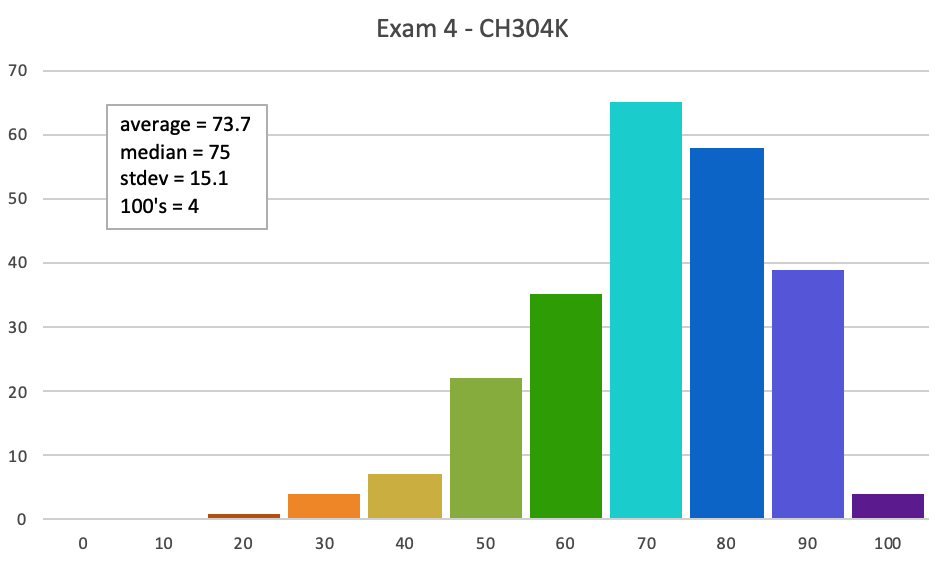exam 4
12/4
exam 4
12/4
Wednesday 12/4
2-2:50pm
UTC 2.102A

What we provide on Exams We will provide all students with:
The cover page with the periodic table will be very similar to the one available in the Appendix of the ChemBook website (Chapter 10).
Coverage: Exam 4 covers all the material that was covered on HW's 07 and 08. ChemBook Chapters: The exam covers all of Chapter 5 on fossil fuels and thermodynamics.
Questions: The exam will have 20 multiple choice questions. This means that each question is worth 5 points. If we up that number we will let you know. We will only grade you by what is bubbled in on the answer sheet that you turn in. We will not look at your exam copy for answers, nor consider them in any way. Bubble carefully and correctly.
Students will know...